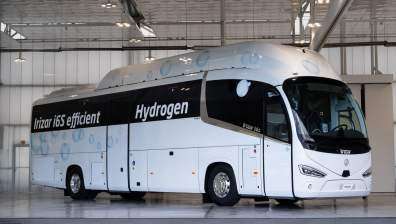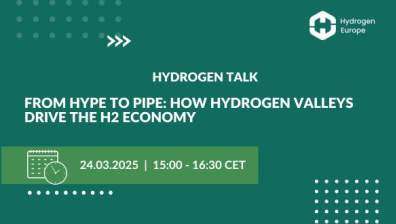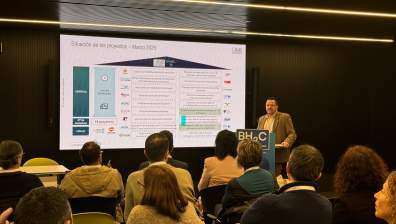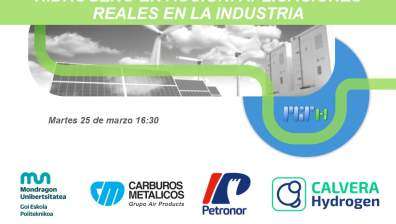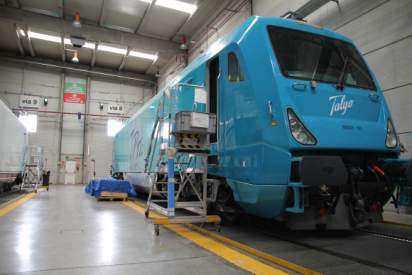
Spanish industry looking to hydrogen to power the train of the future.
The railway companies CAF and Talgo are taking forward two projects to promote the use of hydrogen to power trains, in line with other countries where this power source has already been deployed in their rail services.
Hydrogen is looking to establish itself as an optimal solution to replace diesel traction and to decarbonise the railway sector by using a clean energy source that only emits steam into the atmosphere. Furthermore, the relevant Spanish administrative stakeholders and institutions, led by the Ministry of Transport (MITMA) and the Railway Infrastructure Administrator (ADIF), have adopted an open-door policy to this commitment.
Ongoing projects
The Basque multinational group CAF, together with Renfe, ADIF and the National Hydrogen Centre, have formed the first Spanish technology alliance to develop the hydrogen fuel cell and adapt its use to railroads. The fCH2Rail (Fuel Cell Hybrid Power Pack for Rail Applications) project, funded by the European Union, is studying the integration of a fuel cell system in a pilot train already running in Aragon.
This project is not only focused on making the hydrogen train viable, but also on studying what is required in regulatory terms to put these trains on the tracks, analyse their safety, their feasibility and integrate them into a hybrid propulsion system. To this end, Renfe has loaned a Civia electric traction unit intended for commuter services, which CAF has converted into a bimodal unit so that when it runs on catenary-free (non-electrified) sections of tracks, it can be powered from the new module made up of fuel cells and batteries.
The other major Spanish manufacturer, Talgo, started testing its dual Vittal-One renewable hydrogen train in May. Comprising a laboratory locomotive, five coaches equipped with hydrogen fuel cell technology and a laboratory coach for analysing the test results, the train is capable of reaching 160 km/h in hydrogen mode and up to 220 km/h in electric mode. This design is complemented by a series of batteries for power boost at start-up and which recharge during braking, enabling the train to reach a range of 800 kilometres without electrification. Extremadura has been chosen as the venue for conducting the tests.
Link: Spanish industry looking to hydrogen to power the train of the future (lainformacion.com)
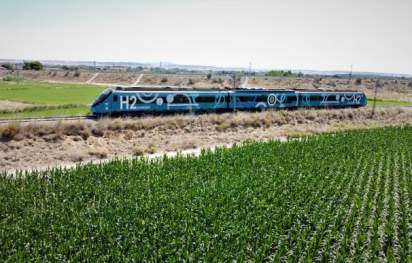
CAF and Renfe hydrogen train prototype
